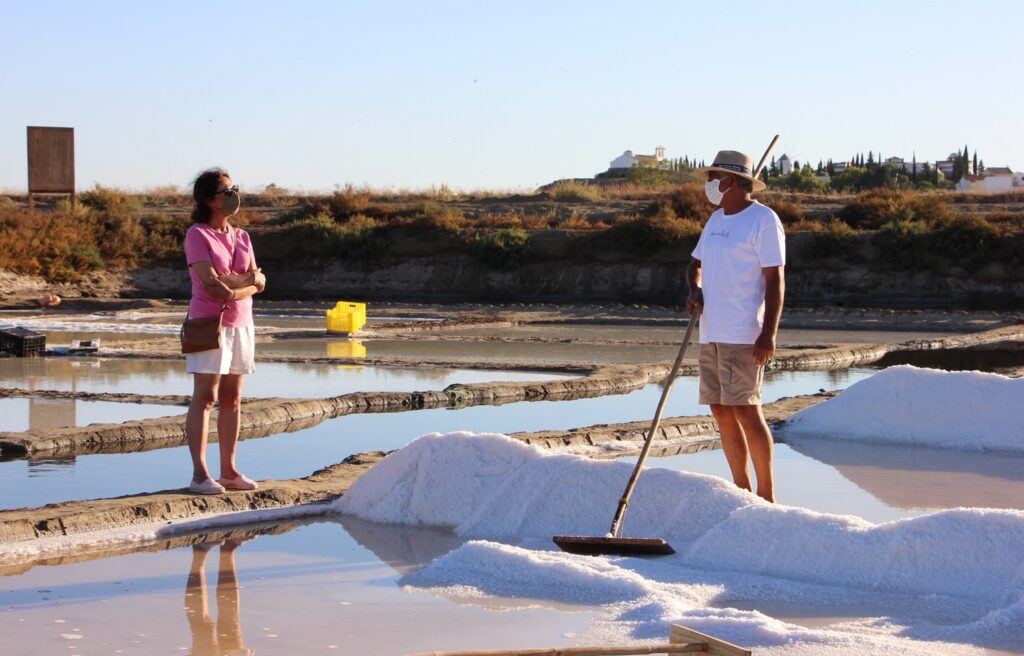It was an “End of Afternoon on Salt”, in the middle of the Sapal de Castro Marim Nature Reserve and Vila Real de Santo António, the first participants of this new initiative that aims to enhance the profession this Monday, August 17th of the saline maker.
At Salina Félix, «the new salt workers learned about the whole process of artisanal salt production, getting to know the small butchers and collecting the salt manually, with the ancestral techniques that the experienced salt workers have taught them», tells the Chamber of Castro Marim.
Home, in addition to the "enriching experience", the participants took a "bag of the "best salt in the world" and also two packages of fleur de sel, which they themselves collected from the creek.
The traditional sea salt from Castro Marim results from the combination of the saltworker's work with the action of the tides, the sun and the winds, and is not subjected to any further treatment, being naturally white and shiny.
The fleur de sal was also observed, although atmospheric conditions did not allow it to be collected. Also the fleur de sal does not undergo any type of processing, it dries in the sun and is then packaged, keeping the flavor and moisture of the sea.
This initiative is part of a strategy of valorization and promotion of the salt producer and, consequently, of salt, which is one of the ex libris of Castro Marim.
With this proximity contact, «it hopes to increase and boost the marketing of local products in the tourist chain», says the municipality.
About two months ago, Castro Marim managed, moreover, to see the name “Sal and Flor de Sal de Castro Marim” legally protected (DOP – Protected Designation of Origin).
The “Fim de Tarde ao Sal” is an action organized by the Municipality of Castro Marim and Associação Odiana, integrated in the Bandeira Azul 2020 program and framed in the candidacy “Patrimónios de Castro Marim: Valorization and Promotion of Local Producers and Endogenous Products”, with reimbursement by CRESC 2020, the PADRE project, supported by Portugal and the European Union, 70% co-financed by the FEDER.



















Comments